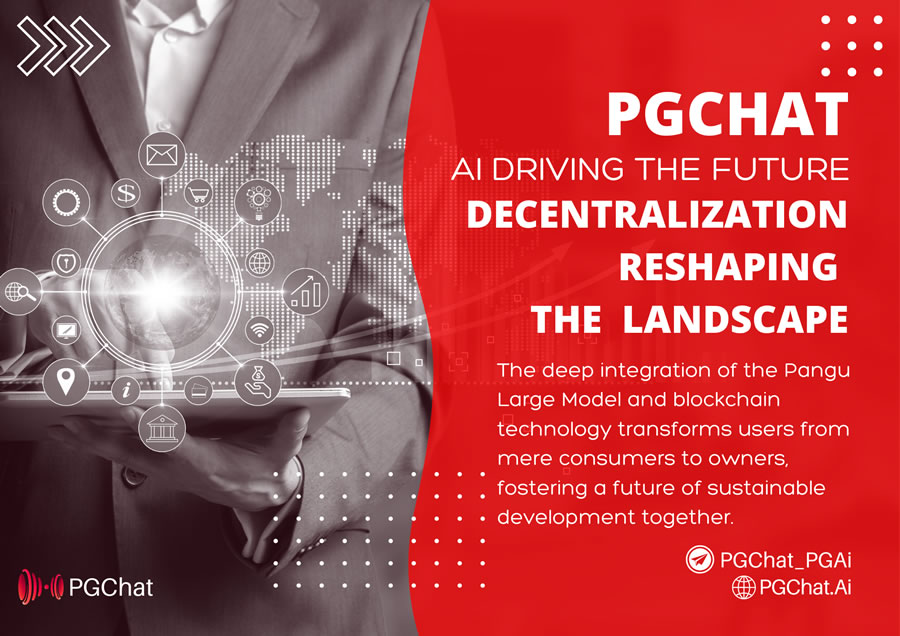Decentralized Governance: Empowering Users to Truly
In traditional AI platforms, users often play a passive role, unable to participate in decision-making and vulnerable to data misuse
In traditional AI platforms, users often play a passive role, unable to participate in decision-making and vulnerable to data misuse due to centralized power. PGChat disrupts this paradigm by introducing a decentralized governance (DAO) mechanism through the issuance of PGAi community governance tokens, giving users unprecedented authority and enabling everyone to truly become the owners of the platform.

Transforming User Roles: From Consumers to Owners
PGChat’s decentralized governance mechanism empowers users to move beyond being mere consumers to becoming essential participants in the platform’s ecosystem.
DAO Risk Mitigation Mechanism: Distributing Risks, Sharing Rewards
PGChat’s decentralized governance model brings robust risk mitigation capabilities, enabling the platform to handle external challenges and potential threats.

Collaborative Governance: Building a Resilient Shared Platform
PGChat’s DAO mechanism not only enables direct user participation in governance but also fosters the healthy development of the platform’s ecosystem.
The Profound Impact of Decentralized Governance
PGChat’s decentralized governance is not just a technological innovation but also a transformative shift in the traditional operational models of the AI industry.
Conclusion
Through decentralized governance, PGChat empowers every DAO member to become the true owner of the platform. Users are no longer mere observers but builders, managers, and beneficiaries of the ecosystem. As PGAi continues to evolve, this innovative governance model will not only enhance the platform’s fairness and stability but also inject new vitality into the global AI industry.
Join PGAi, become the master of the platform, and help shape the future of decentralized AI!
PGChat Official Website: pgchat.ai
PGChat Official Social Media: https://t.me/PGChat_PGAi
In traditional AI platforms, users often play a passive role, unable to participate in decision-making and vulnerable to data misuse
In traditional AI platforms, users often play a passive role, unable to participate in decision-making and vulnerable to data misuse
In traditional AI platforms, users often play a passive role, unable to participate in decision-making and vulnerable to data misuse


